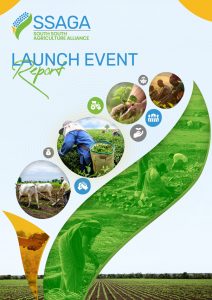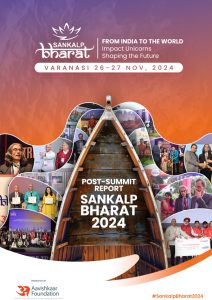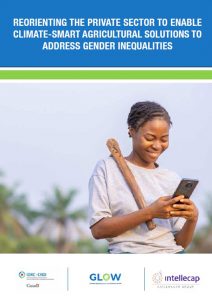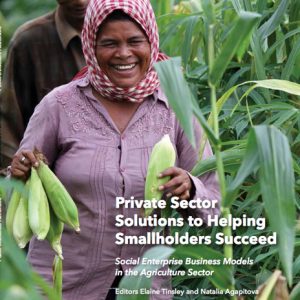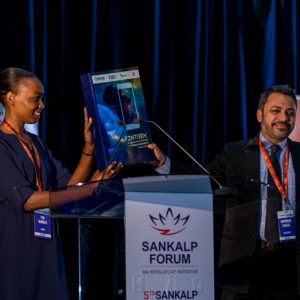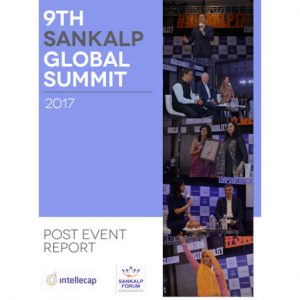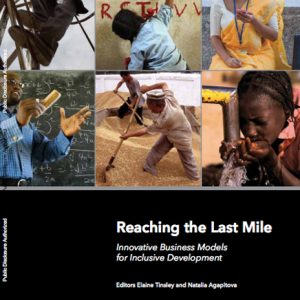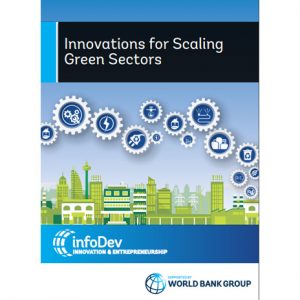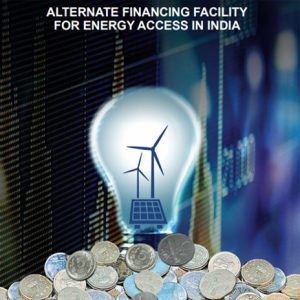TRENDING
-
SSAGA – Benefitting small-scale farmers by fostering innovations and collaboration across the Global South
Published: March, 2025 -
Sankalp Bharat 2024-Post Summit Report
Published: March, 2025 -
Reorienting The Private Sector To Enable Climate-smart Agricultural Solutions To Address Gender Inequalities
Published: February, 2025
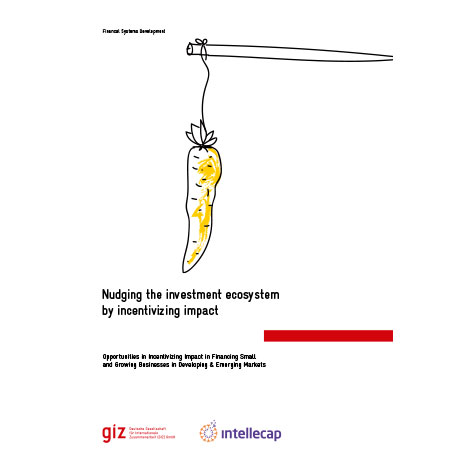
Nudging The Investment Ecosystem By Incentivizing Impact
PUBLISHED: June, 2018
Opportunities in Incentivizing Impact in Financing Small and Growing Businesses in Developing & Emerging Markets
This paper is a summary of fresh ideas on how to channel more capital into impact investing and incentivize impact creation. Building on insights generated by experts at the BMZ hosted conference Financing Global Development – Leveraging Impact Investing for the SDGs, the paper furthers the conversation on Impact Measurement and Management, IMM 2.0, through brainstorming practical ideas and viewpoints in the impact investing value chain: those who provide capital, those who manage it, and those who receive it. This included close to 50 stakeholders, including fund managers, DFIs, intermediaries, entrepreneurs, governments, CSOs and others.
The discussion, conducted in the form of a ‘design lab’ by Deutsche Gesellschaft für Internationale Zusammenarbeit (GIZ) GmbH, Intellecap, and the Swiss Agency for Development and Cooperation (SDC), aims to start a conversation on how to maximize impact by channeling capital into small and growing businesses (SGBs) as a way to expedite achievement of SDGs (Sustainable Development Goals). During the session, industry leaders like FMO, Vox Capital, and Roots of Impact had shared case studies of good practices in incentivizing impact along the investment chain. This formed the basis of brainstorming on development of new ideas on innovative instruments that could nudge the ecosystem towards more actively pursuing and scaling impact.
The result is an analysis of the barriers in the impact investment value chain highlighted during the stakeholder conversations, and key insights on how to overcome them (for example, the need for transparency, standardization, leadership, etc.). In addition, the workshop collated a list of potential ‘wild ideas’ to like impact currency, impact rewards, impact index, online market places for impact auctioning, and a give-back distribution impact support system, designed to incentivize increased levels of investment along the value chain. The practical approaches suggested by stakeholders fit well with the existing impact measurement and monitoring frameworks like GIIN’s IRIS and Intellecap’s PRISM and hold the potential to guide impact capital more efficiently by leveraging good practices.

The Financial Lives of Government Employees – Potential of Digital Finance in Sierra Leone
PUBLISHED: July, 2018
This report documents findings from research on the financial lives of government employees in Sierra Leone, commissioned by the Government to People Payments Project – Building Digital Ecosystem funded by USAID. Intellecap supported UNCDF, Government of Sierra Leone and Bank of Sierra Leone for conducting the research.
There are 80,000 government employees in Sierra Leone who receive salaries digitally in their bank accounts. Insights about their financial lives can help build a viable business case for DFS to expand access to a wide range of financial services for underserved communities in Sierra Leone. Such insights can inform strategies and use cases that the UNCDF and the Government of Sierra Leone can develop to promote DFS in the country. The National Strategy for Financial Inclusion 2017 – 2020 also refers to the need to identify and digitize use cases that will lead to habitual usage, and achieve Sierra Leone’s commitments to the ‘Better Than Cash Alliance’.
Recognizing the need and opportunity, UNCDF supported the Financial Lives Survey of government employees who receive their salaries digitally in Sierra Leone. Intellecap designed the survey to understand how government employees utilize salaries transferred into their bank accounts, their awareness of and access to DFS, avenues to use them and their perceptions about financial services and digital financial transactions. This report contains insights from the survey about potential customers of DFS and recommendations on use cases that could be piloted as an initial step to improve DFS adoption in Sierra Leone.
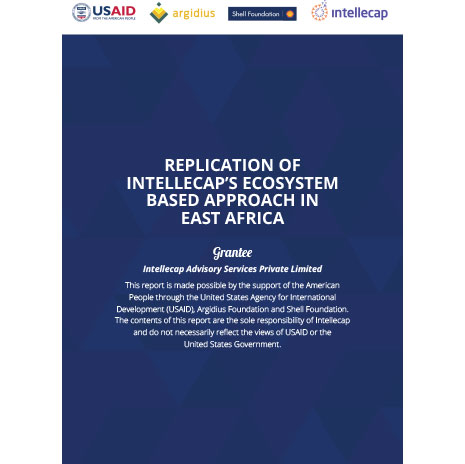
Replication of Intellecap’s Ecosystem Based Approach in East Africa
PUBLISHED: July, 2018
Intellecap has sought to replicate its ecosystem-based approach to East Africa by bringing
together capital, knowledge and networks to support SGBs at two levels: (i) provide direct support
to SGBs in the form of acceleration, fund-raising, technical assistance, innovation transfer, and
market linkages, and (ii) discover and engage critical ecosystem players such as corporations
(both local and international), accelerators, other development sector players in supporting SGBs.
In the three-year period since the launch of our initiative to replicate our ecosystem-based
approach for accelerating entrepreneurship support to SGBs in East Africa, we have received
generous support not only from our funders, but also from a number of local and international stakeholders such as development institutions, private sector entities, and industry associations.
Over the last year, we have replicated our advocacy platform (Sankalp), angel investment network
(I3N) advisory services (consulting & investment banking), virtual incubation platform
(StartupWave) and impact measurement platform (PRISM) as envisaged at the beginning of our
programmatic support. The development and adaptation of StartupWave for East Africa has
resulted in over 450 sign-ups for our early stage enterprise support activities and partnerships with
over 30 incubators / accelerators. Similarly, PRISM, our impact measurement platform, has
garnered interest from a wide variety of players to measure the impact of their programs.
All Publications
-
Private sector solutions to helping smallholders succeed : social enterprise business models in the agriculture sector
PUBLISHED: March, 2018Tags: Agriculture, Value Chain, EntrepreneurshipRegion: AsiaREAD MORE -
FINTREK: Exploring new frontiers in fintech investments in East Africa 2018
PUBLISHED: March, 2018Tags: Financial ServicesRegion: AfricaREAD MORE -
Reducing post-harvest losses in India: Key initiatives and opportunities
PUBLISHED: February, 2018Tags: Agriculture, EntrepreneurshipRegion: AsiaREAD MORE -
9th Sankalp Global Summit : Post Event Report
PUBLISHED: February, 2018Tags: Access, Affordable, Entrepreneurship, Innovation, Health, Agriculture, Financial Services, Livelihoods, Energy, Strategy AlliancesRegion: AsiaREAD MORE -
Reaching the last mile : social enterprise business models for inclusive development
PUBLISHED: January, 2018Tags: EntrepreneurshipRegion: Asia, AfricaREAD MORE -
Innovations for Scaling Green Sectors A new report from infoDev Climate: InfoDev and Intellecap
PUBLISHED: September, 2017Tags: Financial Services, Health, Energy, Livelihoods, Agriculture, EntrepreneurshipREAD MORE -
2018 India: End line Evaluation of GARIMA Project in Uttar Pradesh (2013-2016) for UNICEF
PUBLISHED: June, 2017Tags: NRMCREAD MORE -
2016 India: Energising Panchayats for Better Child Governance in Tamil Nadu; an end line process and outcome evaluation
PUBLISHED: June, 2017Tags: NRMCREAD MORE -
Monitoring & Evaluation for Clean Energy Access
PUBLISHED: June, 2017Tags: Monitoring and Evaluation, Energy, AccessRegion: AsiaREAD MORE -
Innovative Financing for Clean Energy Access
PUBLISHED: June, 2017Tags: Energy, Access, AffordabilityRegion: AsiaREAD MORE
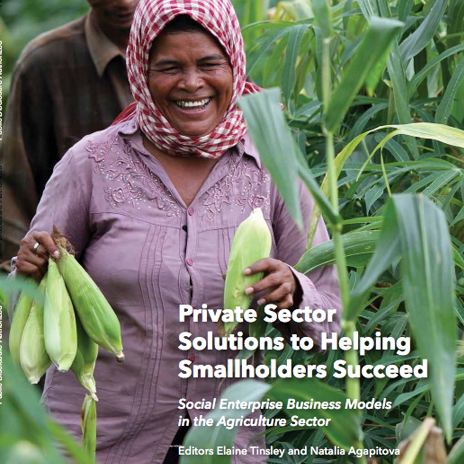
Private sector solutions to helping smallholders succeed : social enterprise business models in the agriculture sector
PUBLISHED: March, 2018
Smallholder farmers in developing countries face tough challenges to their productivity, growth, and sustainability—including lack of access to affordable financial products, limited knowledge of high-quality inputs, low usage of technology and market data, and poor market links across the value chain. To close these gaps and help smallholder farmers thrive, social enterprises are implementing innovative solutions in the agriculture sector to serve them. Social enterprises are defined as private for-profit, nonprofit, or hybrid organizations that use business methods to advance their social mission. In the case of agriculture, social enterprises often address a particular pain point in the value chain, with the intention that the cost of their services or products will be recuperated by the benefits and income gains that smallholders will achieve. To serve such a “last mile” market, social enterprises will often develop a business model that is innovative, cost-effective, and provides strong value for money in providing quality services and products.The purpose of this book is to showcase the market-based solutions that have proven effective at supporting smallholders and to synthesize the experiences of social enterprises around the world. This book catalogues more than 100 social enterprises, categorized into 9 business models, that cut across the agriculture value chain
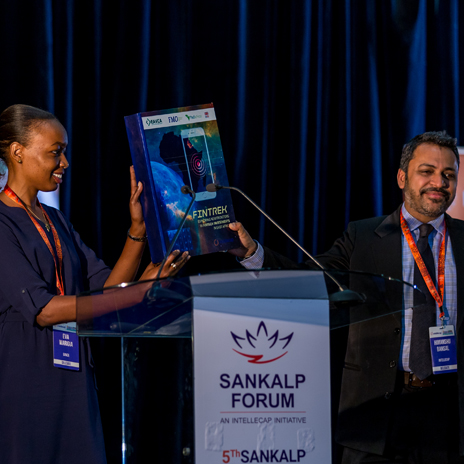
FINTREK: Exploring new frontiers in fintech investments in East Africa 2018
PUBLISHED: March, 2018
PREFACE: With the rapid mobile penetration in emerging economies, FinTech may easily be the buzz word or the flavor of this decade.
While FinTech refers to firms leveraging technology to deliver financial products/services or capabilities to customers or other
financial services firms, it has also carved out its distinct offering to create a full-fledged sector group, complete with its own
service providers, accelerators and market. Once a conduit of the traditional financial service sector, today, FinTech holds
its own as a mainstay service sector.

Reducing post-harvest losses in India: Key initiatives and opportunities
PUBLISHED: February, 2018
Intellecap, supported by the Rockefeller Foundation, conducted in-depth research over a period of 5 months on key areas of momentum around post-harvest losses (PHL) in India. This report synthesizes insights from this research and presents the important roles the government, civil society organizations (CSO) and the private sector play in addressing PHL and improving smallholder farmer (SHF) livelihoods.
The report is divided into four main sections dedicated to key phases in the post-harvest value chain. These include harvesting and primary processing; storage and crop protection; processing; and market linkage.
Each section presents an overview of sector-specific activities and identifies key factors affecting PHL, important trends and innovations, as well as opportunities and white spaces to generate social impact. An additional section covers insights around different aggregation models and mechanisms that agriculture sector actors can leverage to reduce PHL and strengthen SHF market access.
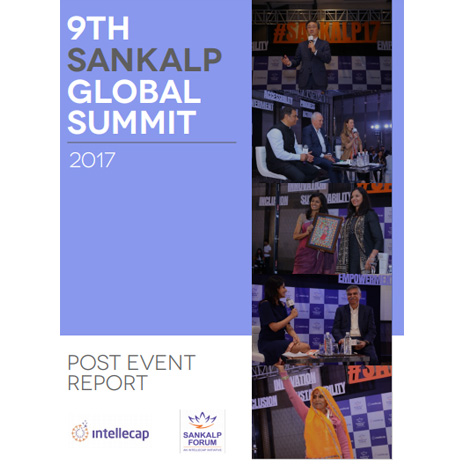
9th Sankalp Global Summit : Post Event Report
PUBLISHED: February, 2018
The Sustainable Development Goals have mobilized companies,
governments and civil society in a cross-sector collaborative
manner that we have never seen before. But the question
remains: will we attain the SDGs by 2030? Importantly, what
impact will they have on quality of life for those currently lacking
access to basic needs? Can quality of life become a human right
with social defaults that ensure physical and mental well-being?
What are the choices that we must make today to ensure this?
At this year’s Sankalp Global Summit, held on December 7-8,
2017 in Mumbai, we set out to answer some of these important
questions. The conference theme focused on issues around
“Social Defaults”, the notion that we must deliberately work to
ensure all people are guaranteed access to education, health,
food, and good work as foundational human rights.
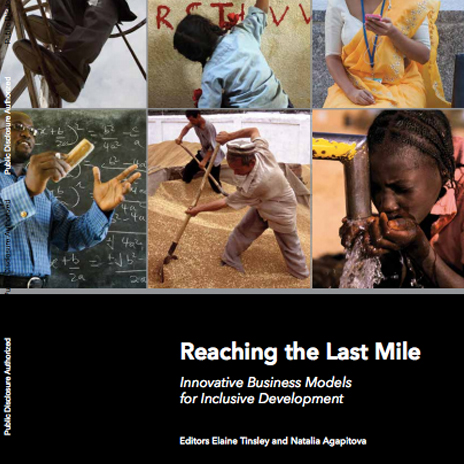
Reaching the last mile : social enterprise business models for inclusive development
PUBLISHED: January, 2018
Bringing essential services to the poor, whether in remote rural areas, provincial towns, or in the slums of megacities, is a great challenge for governments in developing countries. Lack of governmental capacity and fiscal resources at the national and local levels prevents effective public provision of water, power, education, and health services to the poor. And private firms, which often step in to serve the middle and upper classes, are dissuaded by high risks and low affordability from providing these services to the poor, or what is sometimes referred to as “the last mile.” In contrast, social enterprises have been able to provide basic goods and services to the poor. This is the gap that the present book aims to fill. It catalogues over 40 of the most effective market-based solutions for service delivery to the poor brought about by social enterprises. It tracks how stylized business models have been developed to address development challenges. The sectors covered are education, energy, health, waste, water, sanitation, and finance. The book’s analysis employs and greatly benefits from systematically applying a common framework that helps explain the relevance and implementation of the model for even general development practitioners.

Innovations for Scaling Green Sectors A new report from infoDev Climate: InfoDev and Intellecap
PUBLISHED: September, 2017
Green sectors, such as renewable energy and sustainable agriculture, are the key to realizing sustainable growth. The economic potential is significant: Investment in green sectors in developing countries is expected to reach $6.4 trillion over the coming decade, with $1.6 trillion of that investment accessible to small and medium-sized enterprises. But what does it take to promote the growth of these sectors?
This study analyzes the common challenges that have limited the scaling of green enterprises and competitive green sectors in developing countries. It also uncovers and catalogs new opportunities that offer the potential for scale-up and growth.
The study enabled by Intellecap, focuses on enterprises operating across five green sectors—climate-smart agriculture, renewable energy, solid waste management, drinking water purification and management, and wastewater management. Within these five areas, the study takes a deeper dive into seven subsectors that provide an interesting mix of business models, offer insights for other subsectors, and highlight innovative responses to the common challenges that green sectors face.

2018 India: End line Evaluation of GARIMA Project in Uttar Pradesh (2013-2016) for UNICEF
PUBLISHED: June, 2017
UNICEF is committed to the dissemination of lessons learned. This database contains completed evaluations, evaluation programmes, evaluation management responses and other evaluation-related activities that are in compliance with UNICEF Evaluation Reports Standards (2017).

2016 India: Energising Panchayats for Better Child Governance in Tamil Nadu; an end line process and outcome evaluation
PUBLISHED: June, 2017
UNICEF is committed to the dissemination of lessons learned. This database contains completed evaluations, evaluation programmes, evaluation management responses and other evaluation-related activities that are in compliance with UNICEF Evaluation Reports Standards (2017).

Monitoring & Evaluation for Clean Energy Access
PUBLISHED: June, 2017
This publication by Intellecap in partnership with Shakti Sustainable Energy Foundation is a pre-cursor to a comprehensive Monitoring & Evaluation platform being developed to standardize performance measurement in the DRE sector. The framework presented in the publication attempts to facilitate more informed decision-making for investors, lenders, and donors by developing relevant metrics and benchmarks around these for comparison with industry aggregated data. The metrics and benchmarks are being developed for specific sub-segments within DRE including standalone systems and mini-grids.

Innovative Financing for Clean Energy Access
PUBLISHED: June, 2017
This publication by Intellecap in partnership with Shakti Sustainable Energy Foundation, New Delhi reviews the financing needs of Decentralized Renewable Energy (DRE) enterprises across various growth stages as well as business models and explores the design of alternative structures to seal the gaps in the prevailing Indian scenario. DRE enterprises in India, particularly those involved in rural electrification as Energy service companies (ESCOs), face challenges in accessing finance on account of high-risk perception and low overall returns with longer paybacks. The absence of suitable financing and capital that is high-risk low-return has limited the wide scale impact these enterprises have on low-income populations by enabling access to clean energy and generating livelihood options using energy as the enabler.
Reports & Policies
Our Impact Map

Sign up for our newsletter
© Copyright 2018 Intellecap Advisory Services Pvt. Ltd. - All Rights Reserved



